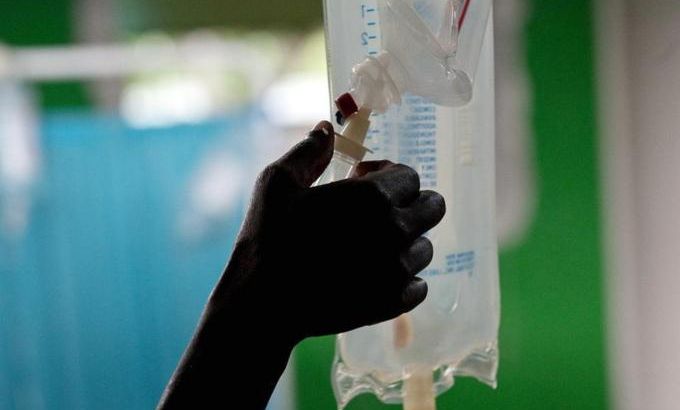Forced sterilisations stoke Kenyan anger
HIV-positive women plan to sue doctors who allegedly performed the procedure without consent.

In a tiny classroom in the heart of Kenya’s largest informal settlement, Kibera, it is Rose Njuguna’s turn to speak about what the doctor stole from her.
Rose is a casual labourer, but the reason that brought her and 10 other women together is far graver than her daily struggle to put a meal on the table.
The women have two things in common: they are all HIV-positive and, because of this, they say they were sterilised in different hospitals – without their consent.
“Sometimes I look at other people’s children, and wonder how old my child would be today. I fantasise about being a mother, and the love I would give my baby,” Rose tells the group.
After the death of her first child in 2000, Rose became pregnant again. At the time, she did not know she had HIV. When complications arose from the pregnancy, she had to be rushed to hospital in pain in her second trimester. Not only did she lose the baby, but she was also sterilised, Rose says.
“I don’t know what happened, I just don’t remember. I was heavily sedated and woke up with my lower abdomen bandaged,” she says.
When she asked, the doctor told her that he had just cleaned her uterus.
|
“This is Africa, where when you’re not able to give birth, and you’re HIV positive, you’re no longer a woman.” – Teresia Njoki, activist |
Rose kept visiting the hospital for regular check-ups, and after six months the doctor told her she had HIV, and that he had tied her fallopian tubes. He also told her that after 10 years she would be able to have another child. It was a lie.
Her husband informed Rose he was leaving to marry another woman.
“He told me that he couldn’t stand being with me because I would never get a child. He said he had told the doctor to sterilise me because he did not want infected children. He broke my heart,” Rose says.
Forced sterilisation
The painful stories discussed in the therapy group session in Kibera are far from unique across the country.
A report funded by the Africa Gender and Media Initiative, published in August, documented testimonies from 40 HIV-positive women in Nairobi and western Kenya.
Most of the women come from poor backgrounds. Many say they have been offered money in exchange for sterilisation.
Some claimed they were sterilised without their consent, after signatures were obtained while in labour, or that it was forced upon them as a condition for receiving free or discounted anti-retroviral drugs or milk formula. Other women said their spouse or parents gave consent on their behalf. Some said they were not informed the procedure was irreversible.
Forced sterilisation is a crime against humanity under the Rome Statute of the International Criminal Court.
Teresia Njoki, who compiled the testimonies and is herself a victim of forced sterilisation, says since completing the report she has spoken to more than 100 women who say they were sterilised under similar circumstances.
“The women I’ve talked to are just from two regions – Nairobi and western Kenya – so imagine what we’d find if we did a national survey,” Njoki says.
The biggest challenge is convincing women to talk about their ordeal openly, she says.
“The issue of sterilisation has brought double stigma,” Njoki says. “Remember we are living with HIV, then the issue of not being able to give birth. And this is Africa, where when you’re not able to give birth – and you’re HIV-positive – you’re no longer a woman.”
Seventy-five per cent of the women surveyed in the report accused government hospital doctors of sterilising them. Others pointed a finger at doctors in a number of hospitals run or funded by non-governmental organisations.
Legal action
More than 20 of the women are planning to sue the hospitals and doctors by the end of the year. They have hired lawyer Allan Machele to prepare their case.
They know it will be difficult to win, but Machele is optimistic.
“We’re going to us the testimonials, show documents that they went to those hospitals, that the procedure did take place, and it will be up to the hospitals to prove that there was consent,” he says.
The hospitals will also have to provide documentation that the women were counselled and given all the necessary information before the procedure.
|
“It’s not right that I was robbed of my choice to have children. It’s something I would not wish upon anybody. That’s why I’m out here campaigning.” – Ruth Achieng, sterilisation victim |
According to Faith Kasiva, the director of the African Gender and Media Initiative, these practices have been going on since the early 1990s, and there are cases of women who were sterilised as recently as last year.
“The purpose of the report is mainly to create awareness so that vulnerable women do not feel compelled to take this route without having all the details to make an informed choice,” Kasiva told Al Jazeera.
In the region, there are several court cases already pending in Zambia, South Africa, Malawi and Namibia.
Recently, a court in Namibia ruled it was illegal for the government to sterilise three HIV-positive women without their consent, rejecting the government’s claims that the sterilisations were consented to, and that poor hospital record-keeping had left the women with no defence.
The women in Kenya are hoping that once their case is in court, the judges will rule in their favour, but beyond that they want other women stricken with HIV to understand their rights before undergoing any such procedure.
“It’s not proper,” Ruth Achieng, another victim says. “It’s not right that I was robbed of my choice to have children. It’s something I would not wish upon anybody. That’s why I’m out here campaigning.”